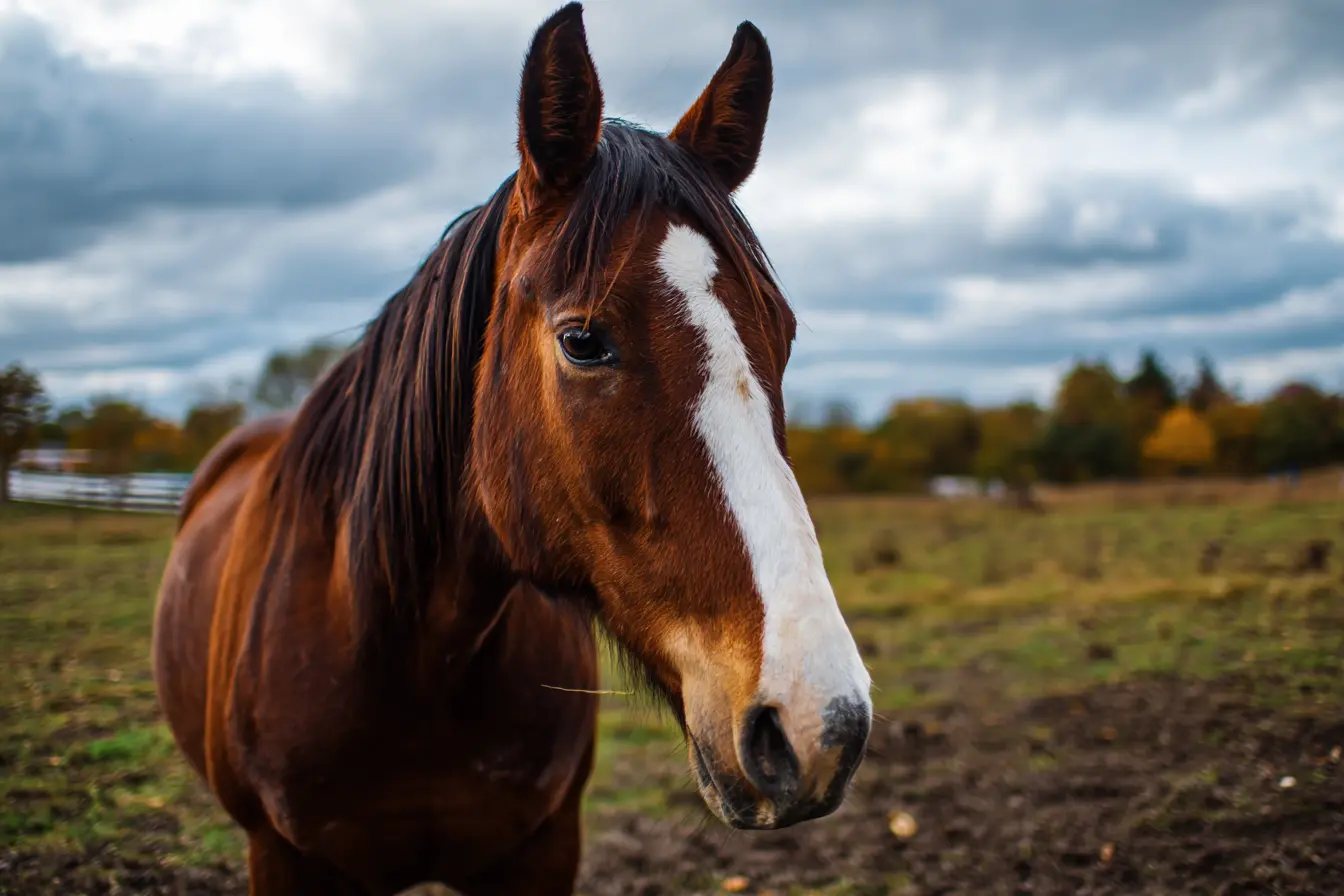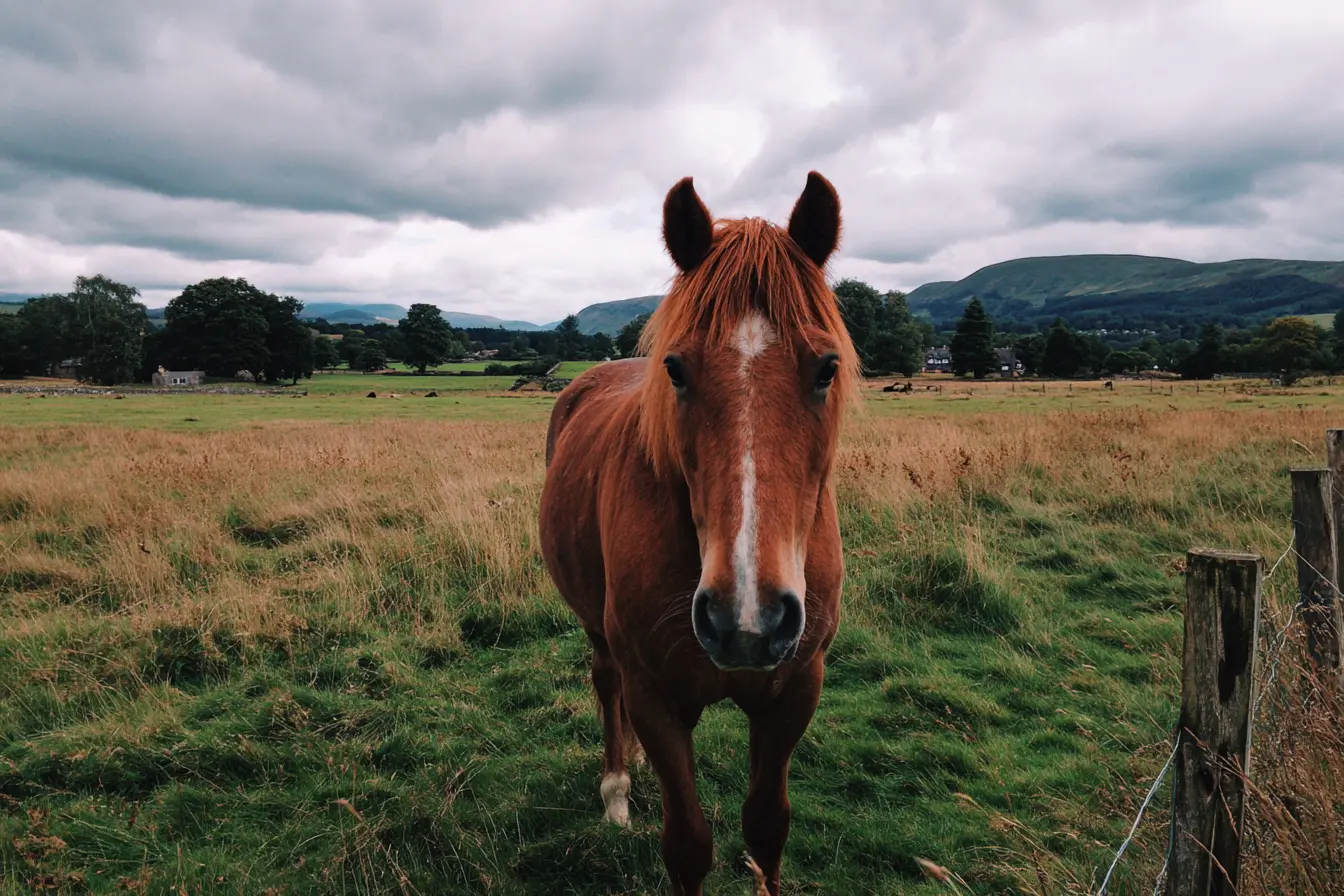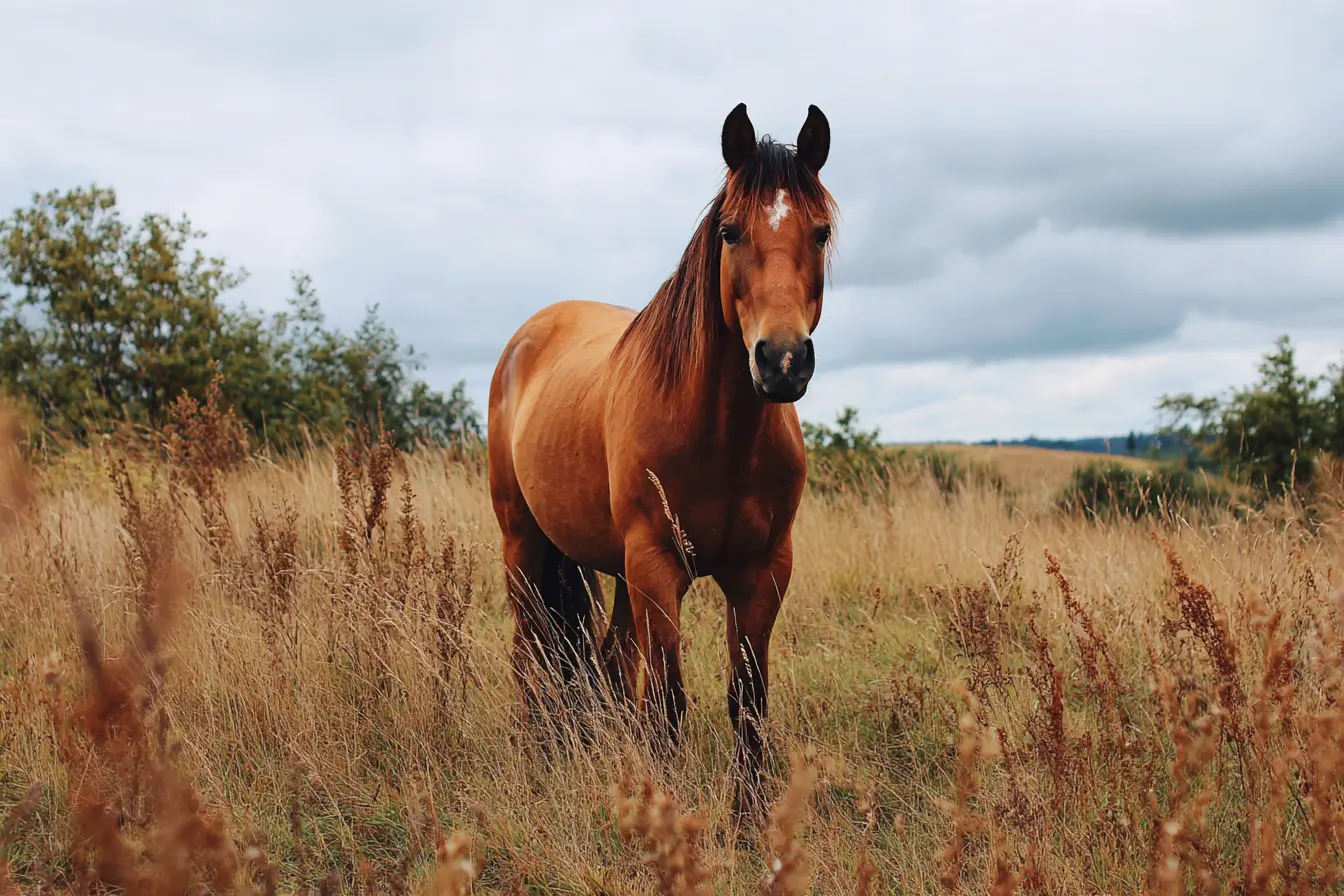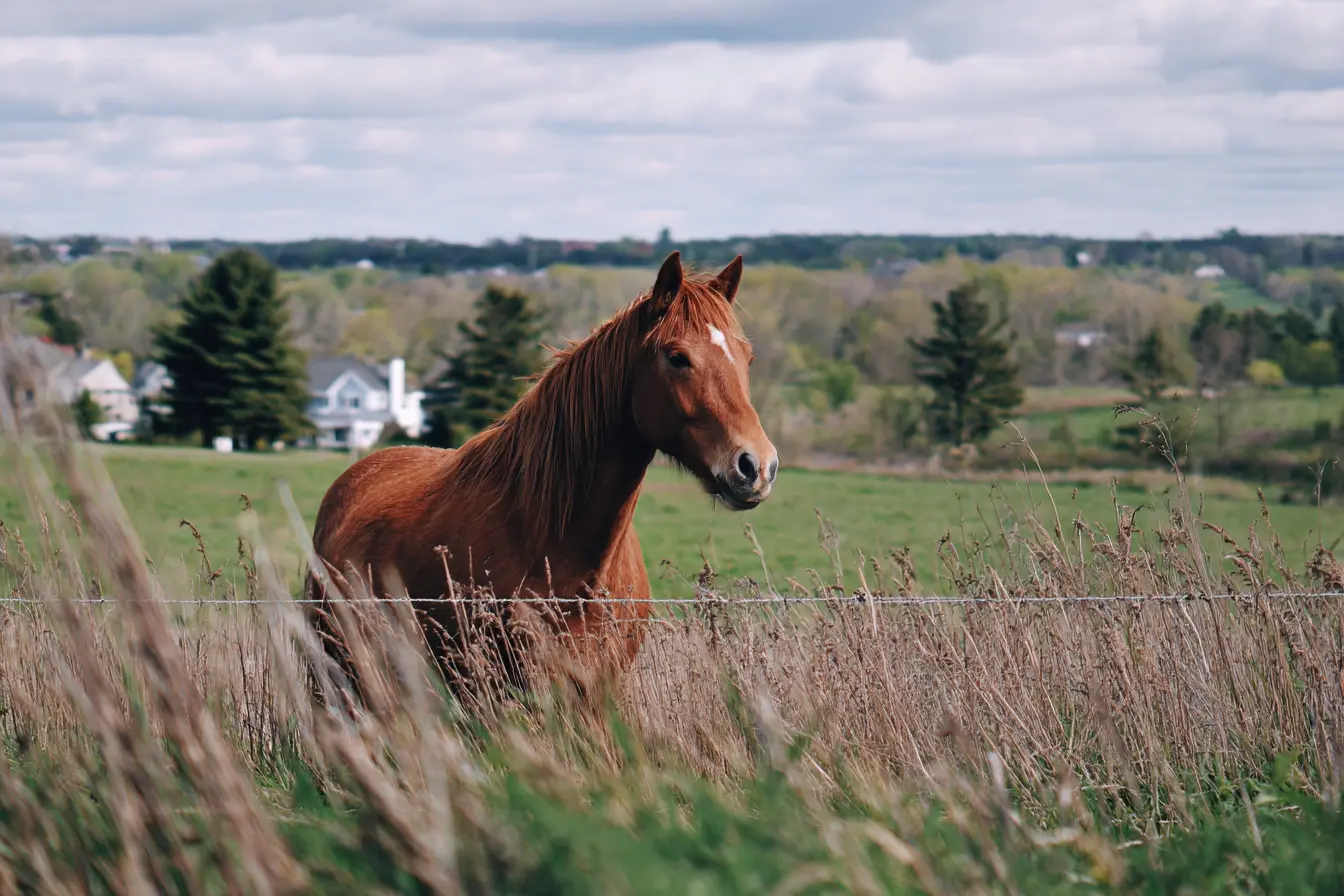
What to Do if Your Horse is Bitten by a Snake
While snake bites in horses are relatively rare in the UK due to our limited number of venomous species, they can still occur—particularly from the adder (Vipera berus), the UK’s only native venomous snake. Most bites happen during spring and summer when snakes are more active, and horses may encounter them while grazing, hacking, or exploring woodland areas.
Knowing how to recognise a snake bite, how to respond quickly, and when to call the vet can make a significant difference to your horse’s outcome.
Are snakes a danger to horses in the UK?
In the UK, the only venomous snake is the adder. They are usually shy and bite only in self-defence, often when accidentally stepped on or startled. Adders are most commonly found in:
- Heathland and moorland
- Coastal dunes
- Woodland edges and sunny clearings
- Long grass and bracken
Most adder bites are not fatal, but they can cause severe local swelling, pain, and in rare cases, systemic reactions. Immediate veterinary care is essential.
Signs your horse may have been bitten by a snake
The signs can vary depending on the location of the bite, the amount of venom injected, and the horse’s individual sensitivity. Common signs include:
- Sudden, unexplained swelling—commonly on the face, nose, or lower limbs
- Puncture wounds or small bite marks, often difficult to spot under hair
- Localised pain or sensitivity
- Warmth and discolouration at the site
- Lethargy or dullness
- Sweating or elevated heart and respiratory rate
- Muscle tremors or weakness
- Difficulty breathing if bitten near the airway
- Colic-like symptoms in some cases
Severe reactions may include collapse, rapid swelling, or signs of shock. These are emergencies requiring urgent veterinary attention.
What to do if you suspect a snake bite
Stay calm
Panicking will not help your horse and may make the situation worse. Take a deep breath and follow these steps.
Call your vet immediately
Describe the signs you're seeing and tell them you suspect a snake bite. Fast action is critical, especially if swelling is near the face or airways.
Keep the horse still and calm
Movement increases circulation, which can spread venom more quickly. Keep the horse as quiet as possible in a shaded area away from stress or herd mates.
Do not apply a tourniquet or attempt to suck out the venom
These outdated methods are ineffective and may worsen the situation.
Do not give any medication unless advised
Anti-inflammatory drugs such as phenylbutazone ("bute") should only be given if instructed by your vet, as they may interfere with assessment and treatment.
Monitor vital signs
While waiting for the vet, observe your horse’s heart rate, breathing, temperature, and behaviour. Note any changes to report to the vet on arrival.
Keep the bite site clean and visible
If the bite site is known, avoid touching it unnecessarily but gently clip away hair if practical so the vet can assess it easily.
Veterinary treatment
Once your vet arrives, treatment may include:
- Anti-inflammatories to control swelling and pain
- Fluids to support blood pressure and hydration
- Antihistamines or corticosteroids if an allergic response is suspected
- Antibiotics to prevent secondary infection (as snake bites are puncture wounds)
- Antivenom is rarely used in horses in the UK due to limited availability and risk of adverse reactions, but your vet will assess the case individually
Most horses recover well with early intervention, though recovery may take several days or longer depending on severity.
Aftercare and monitoring
Following a snake bite, your horse may need:
- Stall rest or restricted turnout
- Ongoing anti-inflammatory medication
- Close monitoring of the bite site for signs of abscess or necrosis
- Gradual return to exercise once cleared by your vet
Watch for delayed complications such as tissue damage, infection, or recurring swelling.
Preventing snake bites
While you can’t eliminate all risk, the following precautions can help:
- Avoid riding or turning out in known adder habitats during peak activity times (warm spring and summer afternoons)
- Stick to well-used paths and avoid long grass or undergrowth where snakes may hide
- Keep pasture well-maintained and mown to reduce snake-friendly areas
- Be cautious around log piles, rocks, or sunny clearings where snakes may bask
- Use caution when hacking near heathland, woodland or marshy areas
Snake bite myths to ignore
There are several outdated or incorrect beliefs about treating snake bites:
-
Myth: You should suck out the venom.
Fact: This does not work and may cause further harm or infection. -
Myth: Horses are too big to be affected by adder venom.
Fact: While fatal cases are rare, horses can still suffer serious reactions and complications. -
Myth: You should immediately apply ice to the bite.
Fact: Ice may reduce inflammation but is not a substitute for veterinary care.
Conclusion
Although snake bites are uncommon in the UK, they are a medical emergency when they do occur. Prompt recognition, veterinary attention, and calm handling can significantly improve your horse’s outcome. Being aware of the risks and knowing how to respond can help keep both you and your horse safe when enjoying time outdoors.
When in doubt—always call your vet. It’s better to be safe and have a false alarm than to miss a genuine emergency.
Vets near you
Speciality vets
- Aquatics vet specialists
- Birds vet specialists
- Camelids vet specialists
- Cats vet specialists
- Cattle vet specialists
- Deer vet specialists
- Dogs vet specialists
- Equines vet specialists
- Exotic vet specialists
- Goats vet specialists
- Pigs vet specialists
- Poultry vet specialists
- Sheep vet specialists
- Small Mammals vet specialists
- Wild vet specialists
Vet facilities
- Accessible by public transport
- Blood testing
- Car park nearby
- Client car park
- Dentistry
- Diagnostic imaging
- Disabled public access
- Flea and worm treatments
- Microchipping
- Mobile services
- Neutering
- Open at weekends
- Out-of-hours service
- Referral interests
- Referrals only
- Street parking outside
- Toilets available
- Vaccinations



